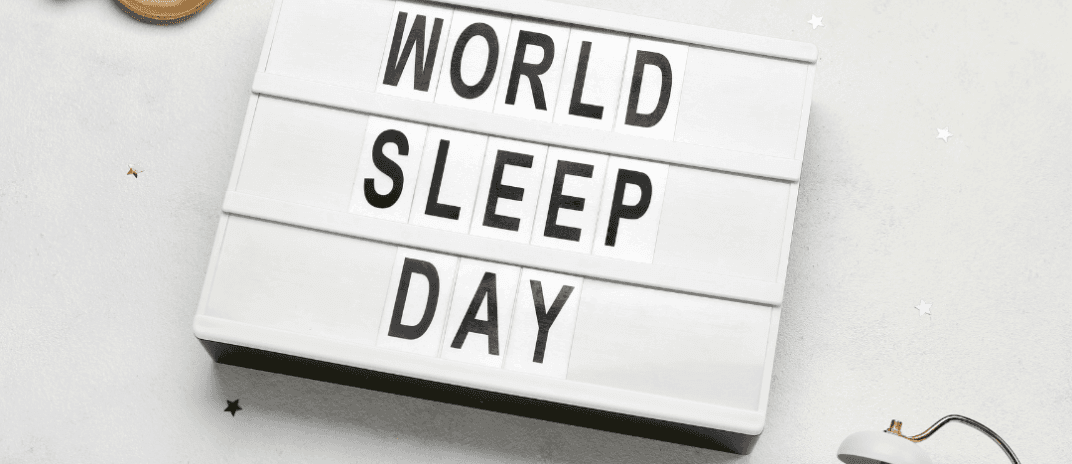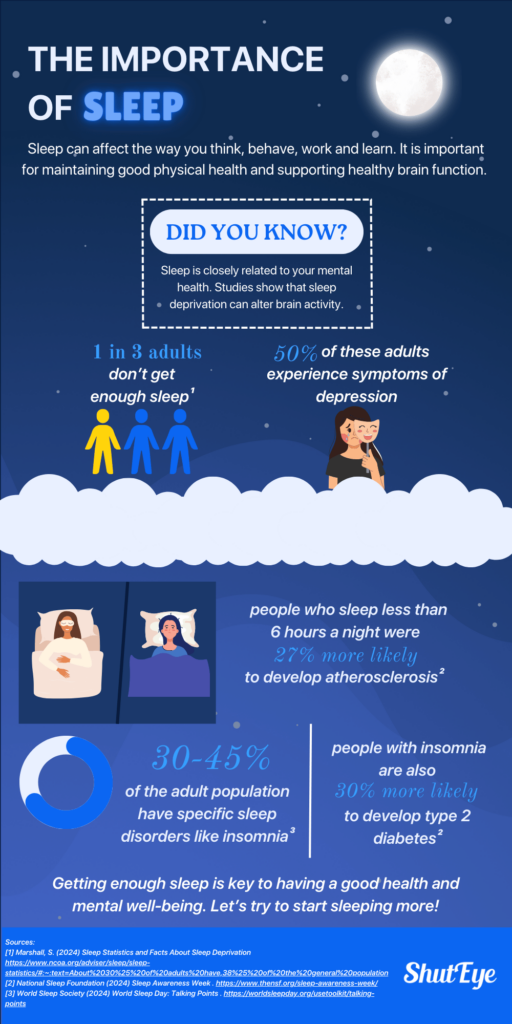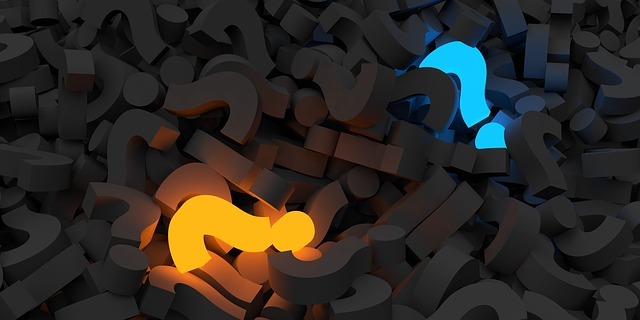


Did you know that there is a day that is dedicated to celebrating sleep? Yes, it really exists. World Sleep Day is an annual event that is meant to celebrate sleep and to raise awareness on anything that is related to sleep such as sleep quality issues, education, social aspects and the burden of sleep disorders that is placed on society.
In this article, let’s take a better look at what World Sleep Day is about and how it is celebrated.
This year’s World Sleep Day is set to take place on Friday, 15 March with the theme of Sleep Equity for Global Health.
World Sleep Day was first started by the World Sleep Day committee of the World Sleep Society. It is an annual event that is typically observed on the Friday before the Spring Vernal Equinox. The goal was to raise societal awareness of important issues related to the burden of sleep problems and how people could better prevent and manage sleep disorders.
The first annual World Sleep Day event, organised by the World Sleep Day committee was held on 14 March 2008.

Sleep is an important aspect of maintaining good physical health and supporting healthy brain function. Without getting enough sleep, it can affect the way you think, behave, work, and learn. In the long term, it can put you at risk of chronic health problems. That is why it is important to address the significance of sleep and sleep problems.
There is a strong correlation between sleep and mental health. Some studies have shown that sleep deprivation can change the activity in some parts of the brain. The National Sleep Foundation (NSF) recently conducted a survey in 2023 and found that 50% of all adults who sleep less than the recommended amount of 7 to 9 hours per night, experienced symptoms of depression– ranging from mild to moderate levels.
Getting a healthy sleep at night allows the body time to restore and recover properly, which is crucial for health. A 2019 study found that people who sleep less than six hours a night were 27% more likely to develop a cardiovascular disease called atherosclerosis. People with insomnia were also 30% more likely to develop type 2 diabetes.
Specific sleep disorders like insomnia is found to affect anywhere between 30-45% of the adult population. Insomnia can leave a negative impact in one’s life from poor work performance to being more prone to accidents.
2008: First World Sleep Day event held and hosted by World Sleep Society
2021: #WorldSleepDay hashtag started trending on social media platform, X.
2024: World Sleep Day event to be held on Friday, 15 March with the theme: Sleep Equity for Global Health.

The best thing that you can do for yourself on World Sleep Day is to sleep! Find a quiet and dark space and sleep as long as you want! However, if that is not a feasible option for you, try taking a short 15-20 minutes nap. Getting some form of rest will help you to feel refreshed and keep your mind alert to continue with the rest of your day.
Practicing good sleep hygiene is just as important as practicing good physical hygiene. This means setting up a sleep routine and cultivating healthy habits. Some examples of good sleep hygiene include:
If you find yourself struggling to keep to a fixed sleep schedule and need some help, you may want to try downloading a sleep app. For example, the ShutEye® App provides some features like sleep tracking, a selection of sleep sounds, music and an in-app alarm. Depending on your sleep routine goals, all of these could potentially help you to sleep and wake up better.
If you have tried everything and are still struggling with sleep problems, you might want to consider speaking to a sleep professional. A sleep professional will be able to better assess your condition, form a diagnosis and create an appropriate treatment plan for you.
Besides the ways that you can celebrate World Sleep Day, here are some other tips on how you can get better sleep:

In conclusion, World Sleep Day serves as a reminder that sleep is essential for our health. Poor sleep health can have multiple negative impacts on one’s physical and mental health. If you find yourself struggling with sleep, it is important for you to take steps to address it. If necessary, consider reaching out to a professional for advice.
Marshall, S. (2024) Sleep Statistics and Facts About Sleep Deprivation [online]. Available at: https://www.ncoa.org/adviser/sleep/sleep-statistics/#:~:text=About%2030%25%20of%20adults%20have,38%25%20of%20the%20general%20population. [Accessed 4 Mar 2024].
National Sleep Foundation (2024) Sleep Awareness Week [online]. Available at: https://www.thensf.org/sleep-awareness-week/ [Accessed 4 Mar 2024].
World Sleep Society (2024) World Sleep Day: Talking Points [online]. Available at: https://worldsleepday.org/usetoolkit/talking-points [Accessed 4 Mar 2024].